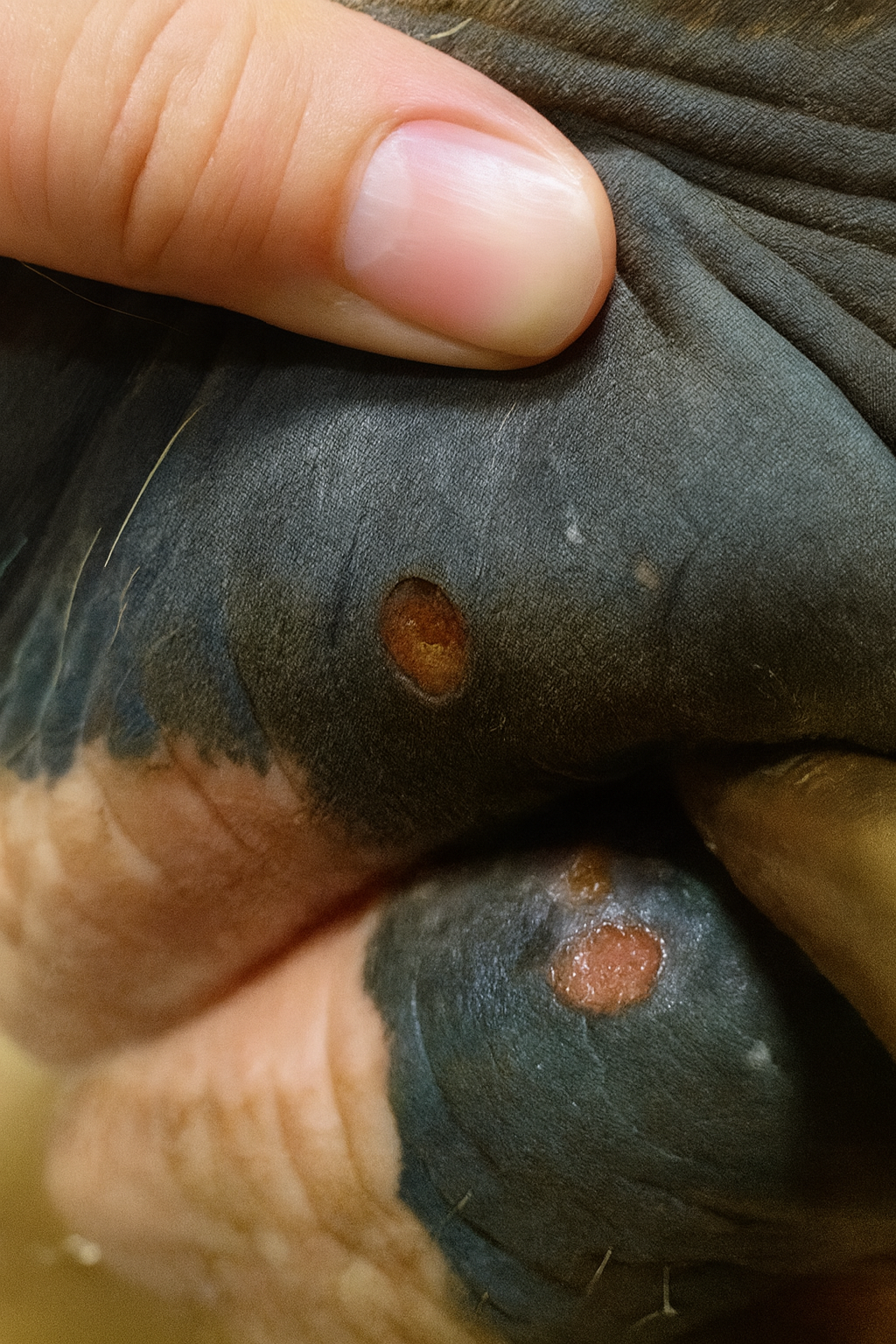Habronemiasis is an infection with Habronema worms. These are worms that live in the stomach of horses. It is a condition described worldwide, but in reality, it is not very common. In the Netherlands, only a few cases have been reported in recent years.
Habronema worms live in the horse’s stomach, where they produce eggs that are excreted in the manure. The larvae can infect fly maggots in horse manure. Once these maggots have developed into adult flies, they can deposit the larvae on moist areas of the horse’s body, such as wounds or mucous membranes. Larvae deposited in or around the mouth are swallowed and can complete their life cycle.
Larvae that are deposited anywhere other than the mouth will penetrate the skin or mucous membranes and eventually die. The dying and dead larvae cause an inflammatory reaction, with the body attempting to encapsulate the larvae. This appears as small bumps that, over time, may ulcerate. Larvae are most often deposited on existing wounds, at the front corner of the eye, the mucous membranes of the eye, the corners of the mouth, or the mucous membranes of the genital area.
Habronemiasis is a condition that is described in many textbooks but is actually rarely seen. As a result, little research has been done on the subject. Hypersensitivity to the larvae likely plays a major role in its development. This means that not every horse infected with larvae will actually develop the disease.
The theory is that multiple infections must occur before the typical clinical picture develops. In the past, this condition was rare in the Netherlands. In recent years, however, it has occasionally been reported. It is not known whether this is due to changing climate, reduced use of dewormers, or other factors.
Treatment usually consists of administering a dewormer containing moxidectin or ivermectin. For prevention, it is important to minimize contact with flies as much as possible. This can be done, for example, by using fly masks, fly rugs, and, if necessary, fly sprays. In addition, regular fecal testing and deworming if necessary are important. Therefore, we recommend following the deworming schedule from Worm&Co. If you have any further questions, please contact us. Our enthusiastic team is happy to help!
